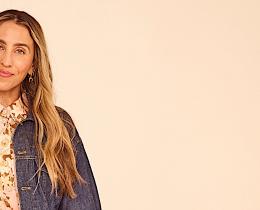Reynolds: All of us who are raising children want to find a balance between hands-on parenting and helicopter parenting. I think you have managed to find that balance when you urge introverted parents not to project their own history onto their introverted child. Can you say more about this?
Cain:Most people who have grown up introverted in this very extroverted culture of ours have had painful experiences of feeling like they are out of step with what’s expected of them. Parenting can pose unique challenges for introverted parents, who fear that their own painful experiences will be repeated in their children’s lives.
But that’s not necessarily the case. Even if you share a temperament with your child, your child is still a different person. They have different parents; they’ve grown up in different circumstances. It’s important for introverted parents not to project their own pain onto their children before it’s actually there.
Reynolds: If a parent is extroverted and a child is introverted—or vice versa—how can a parent support and treasure a child who may be very different?
Cain: It’s important for a parent to learn to take delight in a child whose behavior might seem mystifying. In the case of an extroverted parent with an introverted child, it can be learning to see the inner riches of your child that may not always be expressed on the surface—but are there. They usually come out in the right circumstances, whether it’s in a cozy conversation at the kitchen table, or bath time, or while working on an art project. It’s important for any parent to tune into their child’s frequency.
Introverted parents need to go through the same process with an extroverted child. Introverted parents often ask me how they can be a better parent to their extroverted child who needs so much more stimulation than they are comfortable giving.
Both of these scenarios are incredibly enriching, but they do require parents to step outside their comfort zones.
Reynolds:You write about quiet, restorative niches where one can go to recharge one’s energy. How can an introverted parent of an extroverted child find such a retreat? Should parents try to get their extroverted children to spend time alone?
Cain: The idea of restorative niches comes from the psychologist Brian Little, who believes we all sometimes need to act out of character for the sake of people we love, like our children. But it’s also important to return to, and honor, your own temperament.
One of the challenges that contemporary parents face is the belief that you need to be “on” all of the time for your children, and that if you’re not, then you are somehow failing them. But that’s not the case, even from your child’s perspective. They need to develop their own wherewithal to be in a room by themselves and to entertain themselves. It’s also important for parents to restore themselves, whether it’s making sure that they take a walk alone, or get away with friends from time to time.
Reynolds: And to model that behavior for your children.
Cain: Yes, absolutely. To treasure yourself so your children can learn to treasure themselves. As a parent, if give yourself what you need, your children will watch you doing that and will give themselves what they need.
Reynolds: As a therapist, I’ve recommended your book, Quiet, to many of my introverted clients, and I have witnessed firsthand the difference your research and insights have made in their lives and in their relationships. Many of them wish their parents had had access to the information you impart, as it would’ve saved them a lot of pain growing up. How do you recommend adult introverts make peace with these discoveries much later in life?
Cain: There’s hardly a day that goes by that I don’t hear from readers saying something like what you just said or recalling a difficult childhood. These are often people who are in their 60s and 70s recalling moments years ago when their parents or teachers suggested they be more bouncy or more gregarious. Those sorts of comments really hurt children. So how do you deal with it after the fact? I come back to the idea of treasuring yourself. We can only control the present, so we need to focus on giving ourselves the nurturing we need today, to be here and now.
Reynolds:Is it common in marriages and partnerships to have one person who is an introvert and one person who is an extrovert?
Cain: It’s very common. According to statistics, about half of all marriages are introvert-extrovert pairs. But I have to say that anecdotally, it seems even higher than that to me. It’s not surprising. Opposites attract, and I think temperament is so fundamental that you end up craving someone of the opposite temperament to complete you.
Reynolds: What is the most interesting thing you learned in your research as it relates to relationships and families?
Cain: People don’t realize that introverts and extroverts respond differently to conflict. In general, introverts take a much lower-key approach to conflict. They prefer for it to not happen at all, and when it does happen they want to defuse it. They tend to speak in softer voices to make the conflict more minimal. Extroverts confront problems head on. They might raise their voices.
It’s very important to pay attention to this difference. Introverts, when they are minimizing conflict, feel like they are honoring their partner by reducing the dissension between them. But what introverts don’t understand is that their extroverted partners can experience this as abandonment or withdrawal. Introverts, on the other hand, feel that if their extroverted partner really loved them, then they wouldn’t be so aggressive. If each partner in this situation could understand why their partner is acting the way they are, then they could take their differences less personally.
Reynolds: A modern challenge in families and in relationships is the amount of time we spend online. Many argue that it’s affecting our connections and our bonds. Do you think so? And how true is this for introverts specifically?
Cain:I think this is just as true for introverts as it is for extroverts. Research shows that we are getting addicted to that little dopamine hit we get from checking our emails or doing our tweets. This affects all of us and I think that we all need to pay attention to it.
Reynolds: I was fascinated to learn from you about how schools are more and more set up for those who thrive on stimulation, like in the way that kids are grouped into pods and discouraged from having time alone. But for an introvert having time alone is a critical need. How can introverted children get what they need from a modern classroom?
Cain: This is a huge problem. I’m planning to develop a curriculum for teachers around the country to raise awareness of the introverted temperament. Just the very notion of schools is an extroverted concept. You’re taking a group of people and throwing them into a classroom to be together all day long.
Layer on top of that the current mania for constant group work and you have a situation that I believe is bad for introverts and extroverts alike. It’s bad for introverts because they feel overstimulated by too much group work. But excessive groupwork is also a problem for extroverted children, who need to learn how to work by themselves. Solitude is one of the superhighways to great thought and to developing your talents. We know this from psychological research.
Introverted children will figure out how to get solitude no matter what, because their natures compel them to do it. But the extroverted child really needs to be taught—and they’re not learning that in our classrooms.



